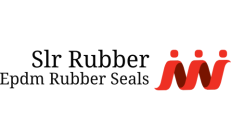Certainly, let’s delve into a comprehensive description of an aluminum seals factory, covering various aspects of its operations, processes, and significance.
Title: A Comprehensive Overview of an Aluminum Seals Factory
Introduction: An aluminum seals factory is a specialized manufacturing facility dedicated to the production of high-quality aluminum seals for a multitude of industries and applications. These factories are pivotal in providing sealing solutions that ensure product integrity, safety, and quality across sectors such as pharmaceuticals, food and beverage, automotive, aerospace, and more. This comprehensive description will provide insights into the inner workings, processes, and significance of an aluminum seals factory.
Location and Infrastructure:
- Strategic Location: Aluminum seals factories are strategically situated to cater to their target markets efficiently. They are often located near industrial hubs, transportation networks, and raw material suppliers.
- Facility Design: The factory’s physical layout is carefully planned to optimize workflow, incorporating dedicated areas for material storage, machining, quality control, and packaging. Safety measures are paramount, ensuring compliance with industry standards.
Manufacturing Processes:
- Material Sourcing: Aluminum coils or sheets, typically 1000, 3000, or 8000 series alloys, are sourced from reputable suppliers. These materials are chosen for their specific properties, including corrosion resistance and malleability.
- Stamping and Extrusion: Aluminum seals are shaped using stamping or extrusion processes, depending on the seal type. Stamping involves cutting and forming flat sheets, while extrusion shapes seals by forcing aluminum through dies. CNC machining may also be employed for intricate designs.
- Surface Treatment: To enhance durability and aesthetics, seals undergo surface treatments such as anodizing or coating. Anodization provides corrosion resistance and color options.
- Quality Control: Stringent quality control measures are in place at every stage. Dimensional accuracy, surface finish, and seal integrity are rigorously inspected to meet industry standards.
Seal Types and Customization: An aluminum seals factory offers a wide array of seal types, including bottle seals, cap seals, heat induction seals, gaskets, and crimp seals. Customization is a hallmark feature, as seals can be tailored to meet unique specifications and branding requirements. This adaptability ensures compatibility with diverse packaging and sealing needs.
Advanced Technology and Machinery: Modern aluminum seals factories are equipped with state-of-the-art machinery and technology. CNC machines, precision presses, automated assembly lines, and computer-controlled quality testing equipment contribute to efficiency, consistency, and precision in seal production.
Environmental Considerations: Sustainability is increasingly vital in manufacturing. Aluminum, being recyclable, aligns with eco-friendly principles. Many factories have implemented recycling programs to reduce waste and minimize environmental impact. Energy-efficient practices and green certifications further demonstrate commitment to sustainability.
Workforce and Training: A skilled and dedicated workforce is the backbone of an aluminum seals factory. Employees are trained in manufacturing processes, quality control, safety protocols, and machinery operation. Ongoing training and development programs ensure that the workforce stays updated with industry advancements.
Significance and Market Impact: The products of an aluminum seals factory play an indispensable role in various industries. They safeguard the contents of containers, prevent tampering, and maintain product freshness. Their applications span pharmaceuticals, food and beverages, chemicals, automotive, and many more, contributing to consumer safety and product quality.
Conclusion: An aluminum seals factory is a dynamic and essential part of the manufacturing landscape, providing sealing solutions that impact numerous industries. Through cutting-edge technology, customization, and a commitment to quality, these factories continue to meet the diverse and evolving needs of their clients while upholding the highest standards of production and sustainability.




